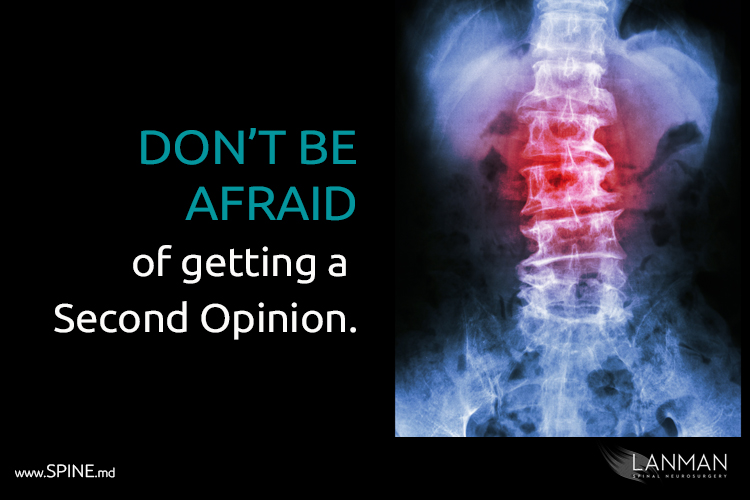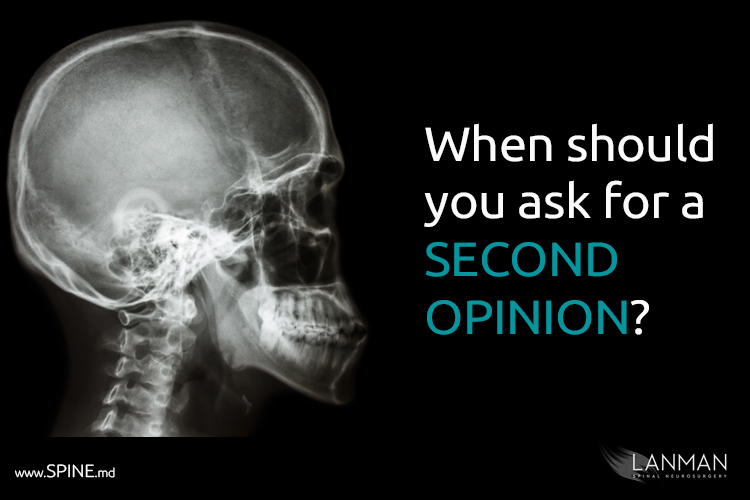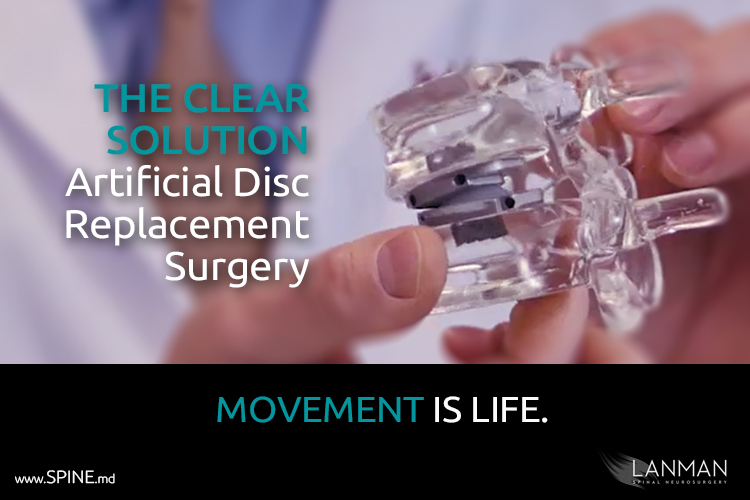Sometimes the only remedy for bad medical advice is by asking another practitioner for another opinion.
A patient of mine is an avid cross-country cyclist. After 10 years and thousands of miles of road, he started experiencing pain in his neck that would not go away. He also noticed that after long rides, he felt numbness in his thumbs, tingling in his arms, and persistent aches along his right arm. After a while, he thought that his right hand, in particular, felt weaker.
Cliff went to his local neurosurgeon who ordered an x-ray—saw the obviously herniated and collapsing disc at C5-6—and within 10 minutes of their first meeting, recommended cervical spinal fusion. Fortunately, Cliff had studied a bit before the appointment. He was prepared for some bad news, but this was over the top.
Cliff said, “I was thinking to myself, I’m 58 and this Dr. couldn’t come up with anything better than spinal fusion?” Cliff declined and began his search for a second opinion.
About a year later, Cliff and I met at my office. I ordered a CT Scan and additional x-rays. Clearly, C5-6 was collapsing. It wouldn’t be long before the vertebrae would be bone-on-bone. But upon closer examination, I found that C6-7 was looking weak as well. Had he gotten the first fusion, he would have been right back for a second one, and likely a third fusion due to adjacent disc failure.
Read about Adjacent Disc Failure.
After two years in a conservative treatment plan that included physical therapy and muscle strengthening, Cliff decided he was ready for surgery. I performed a double cervical artificial disc replacement. About a year later (Cliff’s choice), he was training for his first century ride since before the surgery. Had his outcome been fusion, his cycling days would have remained a fond memory.
The surprising thing is the number of patients I see who have similar stories. I pause here to reflect that there is always more than one answer where health and wellness are concerned, however, sometimes bad advice merely is bad advice. Like telling an active, under 60-year-old patient that he needed a fusion when there were so many other options. On top of that, missing the second herniated disc all but guaranteed that the patient would be back with even more problems, and for more bad news.
Many other patients I have seen were told by their doctors to wait until surgery was a last resort. In these cases, doctors run down the clock until the patient is in so much pain that they’re practically crawling back to the office for help. This is also what I would call “bad advice” because waiting can actually cause more damage and force the patient into very limited treatment options.
To be entirely clear—we want to avoid fusion if at all possible. In my experience, incremental, even proactive preventative treatments will often make fusion completely unnecessary.
Read about Fusion
When I say “proactive,” I’m thinking of a process that allows me to assess the patient with examinations and imaging that facilitate early treatment recommendations. The goal is to prevent severe degeneration that can lead to additional damage and possible injury. Had I been there at Cliff’s first visit, I would have taken one look at the x-ray, and after an hour or so going over his lifestyle and daily routine, I would have sent him in for a CT scan. To be honest, I wouldn’t have needed the scan to see the second herniation in progress, but such a detailed examination
would allow me to look deeper into other potential problems he may encounter after treatment.
This approach may appear preventative, but in my opinion, it is a necessary process if it helps a patient end up with better outcomes. The fact is, too many patients are experiencing what I believe is the complete opposite: a rigid medical system that only responds when conditions are at their worst.
This is a mindset that I’m working to change by my own example. This is why I encourage patients to ask questions of your doctor; probe for more than just a simple answer. And if the doctor is unable or unwilling to respond, get that second opinion.
Your search for more answers will help you optimize your recovery and make you greater than better.







